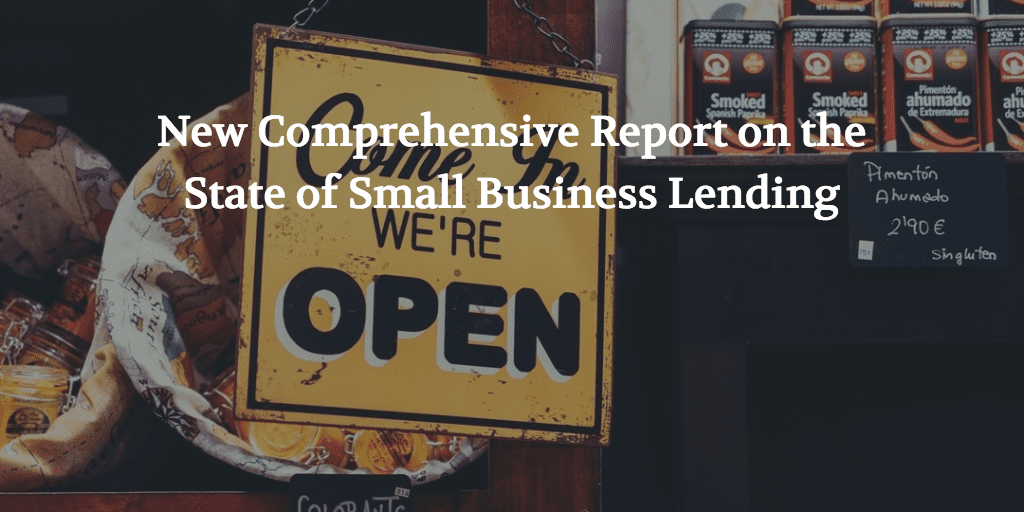
A new Harvard Business School Working Paper titled, The State of Small Business Lending: Innovation and Technology and the Implications for Regulation, was released last week. It was written by Karen Mills, former SBA Administrator and current Senior Fellow at the Harvard Business School and Brayden McCarthy, VP of Strategy at Fundera.
The entire paper is over a hundred pages and covers a lot of ground delving into many of the details of the small business lending landscape. To get some background and understand the goals of the paper we spoke with Brayden McCarthy to learn more.
Brayden stated that there were two goals with the paper. The first one was to lay a foundation for regulatory reform, seeking a balance between protecting borrowers and investors in the small business online lending market while at the same time encouraging the innovation that has already led to broader access to credit for small business owners. He noted that 50-100 years ago was when many of today’s regulations were put in place when there was obviously no concept of online lending so it is certainly time for a new framework.
The second goal was to focus on incumbent banks and how they can partner with this new industry. As Lend Academy has discussed in the past, bank partnerships are a big part of the online lending industry and we predict 2017 will be an even bigger year for partnerships. In the paper they put forward their views on what strategies will differentiate the winners from the losers and they go into some detail on the different kinds of partnerships that are in place today.
Brayden told us that we’ve seen similar trends in other industries to what is happening in online small business lending today. Startups focus on the gaps in the offerings of the incumbents, gain marketshare and subsequently look to expand from there. Certainly some online lenders are focused on credits that banks have ignored, deemed to risky etc. but the innovations on data, the improvements to the customer experience are not going away. Fintech firms don’t necessarily need to be competition, but the incumbents need to think about their build, buy, or partner strategy according to Brayden. Outlined in the paper are different options firms should be thinking about based on priorities and resources.
As part of their regulatory section they discuss the merits of a national nonbank charter in the paper. Just after the paper was released, Thomas Curry, the head of the OCC announced a new fintech charter. While it’s too early to make any concrete judgements on the charter Brayden provided his thoughts generally about the news. He believes this was a watershed moment for regulators and applauds them for understanding the power of online lending despite online lending market penetration of under 10% compared to SMB lending broadly. He believes the new charter is a big boon to the online lending industry.
On the topic of regulation Brayden stated that current regulation is a burden on online lenders and getting licenses state by state is an onerous and expensive process. This sort of regulation goes back to a time when banking was very much a local operation. Today, most online lenders can and should be national but the success of a national fintech charter is by no means assured given there could be push back from the states. In Brayden’s eyes we should use this new fintech charter as an opportunity to set universal rules that strengthen borrower protection, making this a precondition of national charter rules.
Conclusion
One important thing to note is that this paper is a working paper meaning that there will be revisions made to the paper. Karen Mills and Brayden McCarthy are soliciting feedback on the paper and there will be revisions made to the paper over the coming months. Brayden noted that he has already received feedback from market participants. If you have any comments on the paper you can send it directly to Brayden (at) Fundera.com. The paper is available for download on the Harvard Business School website.


